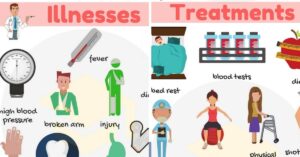
Share this
Early studies on sexual peak

Sexual peak refers to a period of your life when you are most capable of having frequent sex that is high in quality. Research suggests that women reach their sexual peak in their 30s whereas men peak in their late teens.
Most people have heard the phrase “sexual peak.” It refers to a period of your life when you are most capable of having frequent sex that is high in quality. The notion of a sexual peak implies that the time before and after peak those years, your sex life won’t be as remarkable.
Biologically speaking, there isn’t a clear definition of a sexual peak. People have satisfying sex throughout their adult lives. Sex drive and sexual function change over time, but those changes don’t decrease people’s satisfaction from sex.
According to the groundbreaking books, Sexual Behavior in the Human Male and Sexual Behavior in the Human Female, researcher Alfred Kinsey posited that men and women have sexual peaks at different phases of life. His research suggests that women reach their sexual peak in their 30s whereas men peak in their late teens.
This finding from Kinsey’s report remained the conventional wisdom for quite a while. Later, researchers questioned that conclusion. Critics noted that the data Kinsey collected doesn’t tell the complete story.
Kinsey asked people for a measure of when they had the most orgasms. Men reported having a high number of orgasms when they were 17 or 18 years old. Women were more likely to report having regular orgasms when they were over 30 years old.
While that data may be technically correct, it may not be an indication of a biological peak. The statistics may just reflect how often most young men can achieve orgasm, with or without a partner. Many women may require more skilled partners or more experience of their own to achieve orgasm. Many women aren’t adept at communicating their needs to a partner until they have gained some sexual experience. They may be older before they have regular orgasms during shared sex.
When do sex hormones peak?
Hormone levels are another measure of sexuality. Sex hormones generally increase beginning in adolescence. This hormone rise starts at a different time for each individual. Generally speaking, puberty occurs between the ages of 9 and 15. During this period of development, people reach full reproductive maturity. Reproductive hormone levels are at their highest during early adulthood.
Testosterone levels start to decline gradually in men as early as their early 20s. The reduction can decrease libido, less sensitivity in the penis, less intense orgasms, and more time needed to get an erection again after an orgasm. Hormone changes can be responsible for erectile dysfunction as well.
Sex hormone levels also drop in women during their reproductive years. The biggest change comes with menopause when the body ceases menstruating. The loss of reproductive hormones causes lower libido, changes to vaginal tissue, and vaginal dryness.
People who use hormone replacement therapy (HRT) may have a different experience. HRT is known to change libido. Taking set amounts of hormones may result in less fluctuation of hormone levels.
Trans people taking HRT for gender confirmation find that sexual desire changes when they start taking HRT. Trans women report a decrease in sex drive when starting HRT, while trans men report higher libido. Both groups say that eventually, their sex drives return to what they were before starting HRT. Talk to your doctor about how hormone treatments might affect your sex drive over the long term.
When does sex drive peak?
Biological men (cisgender men) without genetic variations or any medical alteration through surgery or medication typically have vigorous sex drive through their early 20s. Reproductive hormones are at their peak, and most people are physically healthy and interested in sex during these years. It’s a cliche to talk about young men having very high sex drives, but it’s also often correct.
Cisgender women generally experience an increase in sex drive later than men. One study reveals that women between 27 and 45 years old report the highest interest in sex and more sexual fantasies than women in other age groups. Women also report having more sex during these years than women of other ages.
When does sexual activity peak?
According to recent research from the Kinsey Institute, people of all ages report having regular sexual intercourse. Still, men between the ages of 25-39 and women aged 20-29 were the most likely to have sex. Frequency of intercourse declines in older age groups.
In other studies, people report higher levels of sexual satisfaction as they get older. Satisfaction doesn’t always mean people have more or better sex. The report correlates with overall attitudes toward sex. People experience more feelings of contentment with the sex lives they have.
Sex is satisfying at all ages
Generally speaking, there is no absolute time when people have a sexual peak. The ongoing research on human sexuality indicates a wide variety of sex drives, sexual activity, and sexual satisfaction. It’s possible to broadly conclude that young, healthy people have the highest hormone levels and are the most likely to have frequent intercourse. Sexual desire and behavior change as people age, but sexual satisfaction often increases, despite those changes.

he Surprising Health Benefits of Sex
The perks of sex extend well beyond the bedroom…

Sex is not only pleasurable, did you know it’s also good for you? It’s true. The benefits of sex range from slashing stress levels to lowering your risk of cancer and heart attacks. Sex facilitates bonding and feelings of intimacy with your partner. This kind of connectedness does more than make you feel warm and fuzzy, it actually reduces anxiety and boosts your overall health.
How would you like a stronger immune system or better sleep? Action between the sheets can help you get all of this and more.
1. Get Less Colds & Boost Your Immune System

More sex equals fewer sick days. That’s what the results of studies comparing sexually active people to those who are not sexually active say. Sex boosts your body’s ability to make protective antibodies against bacteria, viruses, and other germs that cause common illnesses. Of course, there’s more to cultivating a robust immune system than having a healthy sex life. Eating right, exercising, getting adequate sleep, and keeping up to date with vaccinations all contribute to having strong and healthy defenses against contagious illnesses.
2. Boost Your Libido

Believe it or not, the best antidote for a waning libido is to have sex! Having sex actually boosts desire. And if pain and vaginal dryness make it challenging for some women to have sex, sexual activity can help combat these problems, too. Sex boosts vaginal lubrication, blood flow to the vagina, and elasticity of the tissues, all of which make for better, more pleasurable sex and heightened libido.
3. Improve Women’s Bladder Control

Urinary incontinence affects about 30% of women at some point in life. Having regular orgasms works a woman’s pelvic floor muscles, strengthening and toning them. Orgasms activate the same muscles that women use when doing Kegel exercises. Having stronger pelvic muscles means there’s less risk of accidents and urine leaks.
4. Lower Your Blood Pressure

Are you one of the millions of people who suffer from high blood pressure? Sex can help you lower it. Many studies have documented a link between intercourse specifically (not masturbation) and lower systolic blood pressure, the first number that appears on a blood pressure test. That’s good news for individuals looking for an easy adjunct to lifestyle (diet, exercise, stress reduction) and medication strategies to get blood pressure into a healthy range. Sex sessions cannot replace blood-pressure lowering drugs to control high blood pressure, but they may be a useful addition.
5. Counts as Exercise

Like every other kind of physical activity, sex burns calories, too! Sitting and watching TV burns about 1 calorie per minute. Having sex increases your heart rate and utilizes various muscle groups, burning about 5 calories per minute. Regular sex cannot replace sessions at the gym, but a having an active, healthy sex life is a nice way to get some extra physical activity.
6. Lower Heart Attack Risk

Want a healthier heart? Have more sex. Sexual activity helps keep levels of hormones, like estrogen and testosterone, in check. When these hormones are out of balance, conditions like heart disease and osteoporosis may develop. When it comes to protecting heart health by having sex, more is better. One study in men showed that those who had sex at least 2 times a week were 50% less likely to die of heart disease than their less sexually active peers.
7. Lessen Pain

Sexual stimulation (including masturbation) and orgasm can help keep pain at bay. Both activities can reduce pain sensation and increase your pain threshold. Orgasms result in the release of hormones that can help block pain signals. Some women report that self-stimulation through masturbation can reduce symptoms of menstrual cramps, arthritis, and even headache.
8. May Reduce Prostate Cancer Risk

There are male-specific health benefits of sex, too. One study showed that men who had frequent ejaculations (defined as 21 times a month or more) were less likely to develop prostate cancer than those who had fewer ejaculations. It did not matter if the ejaculations occurred through intercourse, masturbation, or nocturnal emissions. Of course, there’s more to prostate cancer risk than frequency of ejaculations, but this was one interesting finding.
9. Improve Sleep

Sex can help you sleep better. That’s because orgasm simulates the release of a hormone called prolactin, a natural sleep aide. Prolactin promotes feelings of relaxation and sleepiness. This is just one of the reasons you may notice that you have an easier time falling asleep after having sex.
10. Relieve Stress

Sex is a great stress reliever. That’s because touching, hugging, sexual intimacy, and emotional attachment stimulate the release of “feel good” substances that promote bonding and calmness. Sexual arousal also releases substances that stimulate the reward and pleasure system in the brain. Fostering intimacy and closeness can help relieve anxiety and boost overall health.
11. Burn Calories

Add sex to the list of activities that burns calories. One study in young men and women showed that sex burns about 108 calories per half hour! That’s enough to burn off 3, 570 calories – that’s a little more than the number of calories in one pound – in 32 half-hour sessions.
12. Improve Cardiovascular Health

Better cardiovascular health may be as close as the bedroom. While some people may worry that physical exertion from sex may lead to a stroke, science suggests otherwise. In a 20-year-long study of more than 900 men, researchers found that frequency of sex did not increase stroke risk. They found that sex protects against fatal heart attacks, too. Men who had sex at least twice per week reduced their risk of a fatal heart attack by 50% compared to gents who had sex less than once a month.
13. Strengthen Your Well-Being

Humans are wired for social connection. Interaction with friends and family boosts your overall health and well-being. Close connections with others, including your partner, make you happier and healthier compared to those who are less well connected. Studies prove it!
14. Improve Intimacy and Relationships

You can hug and cuddle your way to develop warm, intimate relationships. Sex and orgasms stimulate the release of a hormone called oxytocin that helps people bond. This “love hormone” as it’s commonly known, helps build feelings of love and trust. In a study of premenopausal women, the more time the ladies spent canoodling and hugging their husbands or partners, the higher their oxytocin levels were. The hormone inspires fuzzy feelings and generosity, too.
15. Look Younger

Forget surgery and anti-aging creams, sex keeps you younger looking, too. Regular sex stimulates the release of estrogen and testosterone, hormones that keep you young and vital looking. Estrogen promotes younger-looking skin and lustrous locks. In one study, judges viewed participants through a one-way mirror and guessed their ages. People who had sex at least 4 times per week with a regular partner were perceived to be 7 to 12 years younger than they actually were.
16. Live Longer

What’s the secret to living longer? It may be having more sex. In a decade-long study of over 1,000 middle-aged men, those who had the most orgasms had half the death rate of those who did not ejaculate frequently. Of course many factors contribute to longevity, but having an active sex life may be an easy, pleasurable way to extend your lifespan.
17. Boost Brainpower

The benefits of sex truly extend from head to toe. An active sex life might actually make your brain work better. Researchers found that sex switches the brain into a more analytical mode of and thinking processing. And animal studies suggest that sex enhances areas of the brain involved in memory.
18. Sex Makes Fertilization Easier

When it comes to expanding your family, practice makes perfect. A study performed at a fertility center found that men who had daily ejaculations for a week had higher-quality sperm than those who did not ejaculate daily. Men in the daily ejaculation group had sperm with DNA that was less fragmented than the DNA from sperm of men who ejaculated less frequently. Less fragmented DNA implies healthier DNA. And hearty sperm that have healthy DNA are more likely to fertilize an egg.
Sources:
This tool does not provide medical advice. See additional information:
© 1996-2023 WebMD, LLC. All rights reserved.
Source slideshow on OnHealth








